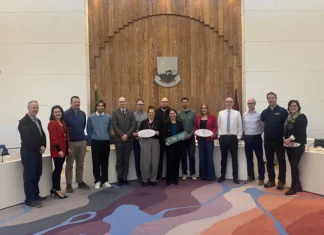CÚRAM, the Science Foundation Ireland Research Centre, based at NUI Galway, will partner with five other European institutions to develop new therapies and technologies for the treatment of burns and wounds.
The €4 million NanoGrowSkin project will involve a multidisciplinary healthcare approach to develop better chronic wound therapies.
The goal of the project is to develop a bio-engineered human skin substitute, improving the manufacturing process, shortening the production time, and making it more effective.
CÚRAM Directoor, Professor Abhay Pandit, said: “The skin is the main protective barrier the body has against any external attack. Any skin disease or injury needs to be treated immediately.
“The most common conditions are wounds, pressure ulcers and burns, and current treatments based on the use of skin grafts, or even on implanting skin originating from a donor, are associated with several problems.
“In this project we will be investigating the development of a bioengineered human skin substitute that would be a suitable option for treating patients.”
Until now, different types of artificial skin covers have been designed, although none of them has successfully reproduced the accurate structure and functions of the native human skin.
“We aim to overcome the two major drawbacks of severe skin wounds, the urgent need of an effective skin implant in life-threatening situations and to avoid/counteract usual bacterial infections”, added Professor Pandit.
The international research team will take advantage of their combined expertise on tissue engineering, to manufacture an autologous (from the patient’s own body) skin substitute comprised of materials whose safety and efficacy have already been proven in humans.
The project team, led by Professor Miguel Alaminos, Health Research Institute in Granada and Universidad de Granada, Andalucía, with partners from the Italian Biochemical Institute, Université de Bordeaux and the University of Technology of Compiègne in France, CÚRAM at NUI Galway and the company OSI Health XXI in Spain.












